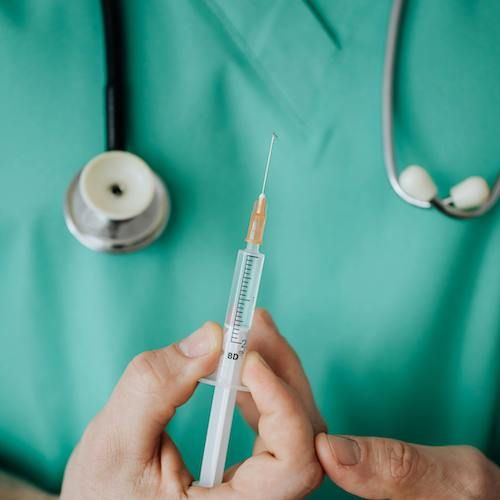News
Article
Dapagliflozin Lowers Risk of Decline in Late-Stage Kidney Disease
Author(s):
Key Takeaways
- Dapagliflozin reduced eGFR decline and adverse renal outcomes in advanced CKD stages 4 and 5 patients.
- The DAPA advKD trial showed dapagliflozin slowed kidney function decline and reduced dialysis need.
The dapagliflozin group had an average eGFR rate of -2.24 mL/min/1.73 m2 compared to -3.67 mL/min/1.73 m2 in the control group after about 1.5 years of follow-up.
Credit: Adobe Stock

Dapagliflozin yielded lower risks of estimated glomerular filtration rate (eGFR) decline and negative renal outcomes in people with stages 4 and 5 chronic kidney disease (CKD) and eGFR rates between 10 and 30 mL/min/1.73m2 compared with placebo.1
“Our study focused on patients with advanced chronic kidney disease to test whether dapagliflozin can still benefit those with severely reduced kidney function. We found that this medication helped slow the decline in kidney function and reduced the need for dialysis or other advanced treatments,” corresponding author Yi-Wen Chiu, MD, of Kaohsiung Medical University Hospital, in Taiwan, said.2 “Our next steps are to continue studying its long-term safety and effectiveness in this group.”
Dapagliflozin is a sodium-glucose co-transporter 2 inhibitor which has been shown to improve kidney health in patients with CKD, although its effects on later-stage CKD have not yet been determined.
The open-label Dapagliflozin and Renal Surrogate Outcomes in Advanced CKD (DAPA advKD) trial enrolled 180 patients with stages 4 and 5 CKD randomized 2:1 to dapagliflozin in combination with integrated CKD care or integrated CKD care alone. Patients had eGFR levels between 10-30 mL/min/1.73m2 and eGFR declines of at least 2.5 mL/min/1.73m2/yr. The trial primarily evaluated preservation of eGFR decline of at least 0.75 ml/min/1.73m2/yr. Secondary outcomes included a composite outcome of renal replacement therapy, eGFR of less than 5 mL/min/1.73m2, renal or cardiovascular death or at least a 50% decline in eGFR; and a composite outcome of renal outcomes, acute kidney injury, and heart failure.1
The investigators found that the dapagliflozin group had an average eGFR rate of -2.24 mL/min/1.73 m2 compared with the control group’s average eGFR rate of -3.67 mL/min/1.73 m2 after a median of 1.62 years of follow-up. The dapagliflozin group also had lower rates of kidney events and cardiovascular outcomes, including acute kidney injury and heart failure.1
Dapagliflozin also recently showed efficacy in improving kidney function and glycemic management in youth and adolescents with type 1 diabetes in the ATTEMPT study, data from which were presented at June’s American Diabetes Association (ADA) Scientific Sessions.3
Over 16 weeks in 98 participants with T1D, low-dose dapagliflozin attenuated direct measures of GFR and was associated with a significant decline in HbA1c of 0.48% (P = .001). Notably, there was a single case of mild diabetic ketoacidosis (DKA) in the dapagliflozin group and a greater number of elevated blood ketone events ≥0.6mmol/L (n = 106) compared with the placebo group (n = 62; P <.001).3
“This study paves the way for us to evaluate treatments that can reduce kidney disease progression for those with type 1 diabetes,” lead investigator Farid Mahmud, MD, a physician in the division of endocrinology in the department of pediatrics and associate professor at the University of Toronto, said in a press release.3 “These findings also give us meaningful insights as we look how we optimize diabetes management in youth and young adults during a challenging period associated with kidney disease progression and above-target A1c.”
REFERENCES
Chiu Y, Hung C, Hwang S. Efficacy and Safety of Dapagliflozin in Patients with CKD Stages 4-5. Presented at: ASN Kidney Week 2024, October 23-26; San Diego, California.
American Society of Nephrology. High-Impact Clinical Trials Generate Promising Results for Improving Kidney Health: Part 2. Newswise. October 26, 2024. Accessed October 26, 2024. https://www.newswise.com/articles/high-impact-clinical-trials-generate-promising-results-for-improving-kidney-health-part-2.
American Diabetes Association. Common Type 2 Diabetes Drug Shown to Safely Reduce the Progression of Kidney Disease in Adolescents with Type 1 Diabetes. June 24, 2024. Accessed June 24, 2024.





